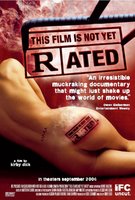 In five years, I will be just about exactly Zach Braff's age in The Last Kiss, and if I act like he does in the film, I hope my dear friends will have the good sense to kill me in my sleep.
In five years, I will be just about exactly Zach Braff's age in The Last Kiss, and if I act like he does in the film, I hope my dear friends will have the good sense to kill me in my sleep.Based on an Italian film I have not seen (and this is the sort of material that Europeans tend to do better than Americans, but nothing in the story leads me to believe that it was ever bearable), The Last Kiss is the story of an unlikable, angsty 29-year-old who decides that it's just too scary to have a pregnant non-fiancée, and so he launches on a journey of self-loathing discovery. It reads and plays exactly as an update of Braff's overrated Garden State, right down to the annoyingly airy brunette who represents an ideal of womanhood as written by a man who has never seemingly interacted with a woman.
The scary thing is that Braff didn't write it - it's the work of Crash scribe Paul Haggis, and like that film it's an ensemble piece about many deliberately vague characters who represent just about everything other than an actual person. The protagonist Michael is ALL MEN SCARED OF COMMITMENT ON THE CUSP OF 30, and his girlfriend Jenna is ALL IMPATIENT WOMEN, et cetera. Except, of course, they're not: any time a character is self-consciously meant to be All People, it fails miserably.
An ensemble piece, and yet not a very good one - the focus is clearly on Michael, and his idiotic flirtation with a college girl, and so none of the stories of his wastrel friends comes together very well, yet far too much time is spent on their subplots. We are left with not remotely enough to like them or be interested in their lives, and yet too much to ignore, and so we just hate them for wasting our time.
The acting, across the board, is bad, although with material like this it's hard to blame the actors. Blythe Danner has the most to apologize for in her scene-chewing role as Jenna's sexually unsatisfied mother, a performance that clearly begs for an Oscar nomination. But no-one - not Braff in his whining glory, nor Jacinda Barrett as his initially absurdly tolerant, then absurdly vengeful girlfriend, and certainly not Rachel Bilson, playing a daffier version of her character from The O.C. if such a thing is possible - comes across as likeable or sympathetic. They are navel-gazers all of them, in the most alienating and disgusting way. Only Tom Wilkinson survives reasonably unscathed, and it's probably because he has the least dialogue of any major character - as Danner's estranged husband, he is largely stoic and his role is mostly to advise sucking it up and admitting that other people's problems matter more than your own. If this were Garden State, that sort of viewpoint would make him the villain, but here he's the de facto hero, as there is simply no-one else even remotely bearable.
Tony Goldwyn directed, but it's been a long time since I saw a film so utterly beholden to its script and cast, and the only bad thing I can say about the director is that he agreed to the project in the first place. It is a completely flat piece of cinema, without any interesting choices (worst moment: when the camera looks over Braff's shoulder across the water to signify Pensiveness and Yearning, or some damn thing, and it does this unironically). It's too much to say that I hated the film, but I can't be too positive about spending $9 to spend two hours with people that I so uniformly want to slap.
4/10
Two more below the jump.
 What Michael Moore hath wrought, part 917: a documentary whose star is its director, and just about everything wrong with it stems from that fact. Kirby Dick's This Film Is Not Yet Rated is a muckraking exposé of the Motion Picture Association of America, and a fairly successful attack on the hypocritical and sex-phobic ratings system. Through interviews with some of the directors who have tangled with the MPAA and lost (you always lose, tangling with the MPAA), such as Kevin Smith, Matt Stone and Kimberly Peirce, Dick proves what all of us have known all along: anything vaguely kinky is bad in Hollywood, and anything showing women can possibly enjoy the sex act is really, really bad. Decapitations? They're fine.
What Michael Moore hath wrought, part 917: a documentary whose star is its director, and just about everything wrong with it stems from that fact. Kirby Dick's This Film Is Not Yet Rated is a muckraking exposé of the Motion Picture Association of America, and a fairly successful attack on the hypocritical and sex-phobic ratings system. Through interviews with some of the directors who have tangled with the MPAA and lost (you always lose, tangling with the MPAA), such as Kevin Smith, Matt Stone and Kimberly Peirce, Dick proves what all of us have known all along: anything vaguely kinky is bad in Hollywood, and anything showing women can possibly enjoy the sex act is really, really bad. Decapitations? They're fine.The film suffers a bit from familiarity (does anyone need to be told that the ratings system is flawed), and yet it is valuable for providing all of these arguments, with film clips to back everything up, in one neat package. The style is a bit maddening at times, full of many bright-colored graphics with hard-to-read fonts, and it's clear that Dick is trying to make an academic subject a bit more accessible, with mixed results (worst example: a list of all the directors who received or were threatened with an NC-17, while comprehensive, is almost impossible to read, and it's frustrating to see Aronofsky and Kubrick lumped in with Stone and Smith, as though there isn't a fundamental imbalance in their films' merits).
Running alongside this commentary is an actual plot, in which Dick hires a private investigator (she is a lesbian, which the film takes some pains to make sure we notice; why this matters is unclear, but I can't think of a single explanation that isn't exploitative) to track down the anonymous members of the MPAA ratings board, on the arguement that accountability and transparency are necessary things in any censorship body in a functioning democracy. Which I agree with, and it is hard not to get angry that not one of these "typical American parents" has a child younger than high-school age. The problem is that Dick fashions himself as a iconoclastic hero for violating these people's privacy, even though it's fairly clear that his is a temporary, unimportant victory. This is the chief difference between someone like Moore and someone like Dick: both are self-aggrandizing, but Moore knows he's not making things better. Dick suffers from annoyingly sopomoric delusions of self-importance. His tone is endlessly snarky, and frankly grating. It takes a lot to make my sympathise with the people who called Eyes Wide Shut pornographic, but he comes close.
Still, the material is interesting, and some of his muckraking does have a purpose. I just wish he wasn't such a Dick about it.
I'm really sorry about that.
7/10
 A singular example of a film that exists solely for its lead performance, which is brilliant, Sherrybaby is an extremely dismal experience. The plot in short: Sherry Swanson gets out of prison after three years, clean for the first time in ages, and thrilled to reconnect with her daughter. Her brother and sister-in-law are both assholes about letting her back into their lives. This makes Sherry extremely depressed, and she decides to give up on rebuilding her life.
A singular example of a film that exists solely for its lead performance, which is brilliant, Sherrybaby is an extremely dismal experience. The plot in short: Sherry Swanson gets out of prison after three years, clean for the first time in ages, and thrilled to reconnect with her daughter. Her brother and sister-in-law are both assholes about letting her back into their lives. This makes Sherry extremely depressed, and she decides to give up on rebuilding her life.Maggie Gyllenhaal gives the performance of her career thus far as Sherry. Her natural haziness and addled way of delivering lines work perfectly to evoke the character's detachment; the impact of her anger and frustration late in the film is possible only because of how flighty she acts in the beginning.
Everything around her, unfortunately, is textbook indie glumness. The film is shot in a verité style, handheld and grainy throughout, and the griminess of the visuals is replicated in the story. This is a world populated by grotesques, starting at Sherry's absurdly vicious family, to her bitter parole officer. That most of these characters later act in marginally sympathetic ways is less a sign of roundness and more of inconsistency.
Worse still is how rote and predictable it all is, and how very meaningless. When Sherry falls back on drugs, which we expect, it takes no apparent toll on her, and so when she abruptly reforms, which we expect as well, it does not feel like a triumph. The plot goes through its paces and then stops, without any sort of moral weight. Sherry's life is extraordinarily unpleasant, but not cathartic in the least. She just...gets better.
There's a strange schizophrenia in how much the filmmakers trust the audience. Certainly elements are left extremely vague - too much so, in the case of Sherry's apparently incestuous relationship with her father, which is touched on and then ignored - and yet many themes, particularly those concerning her feelings as a mother, are driven into the ground. Enough to ruin a good film, and Sherrybaby is hardly good. It's a chain of Sundance clichés whose ending is clear from the first scene, and whose reason for being is entirely limited to a bravura performance by a talented actress who needs an emergency lesson in picking better material.
5/10
No comments:
Post a Comment
Just a few rules so that everybody can have fun: ad hominem attacks on the blogger are fair; ad hominem attacks on other commenters will be deleted. And I will absolutely not stand for anything that is, in my judgment, demeaning, insulting or hateful to any gender, ethnicity, sexual orientation, or religion. And though I won't insist on keeping politics out, let's think long and hard before we say anything particularly inflammatory.
Also, sorry about the whole "must be a registered user" thing, but I do deeply hate to get spam, and I refuse to take on the totalitarian mantle of moderating comments, and I am much too lazy to try to migrate over to a better comments system than the one that comes pre-loaded with Blogger.